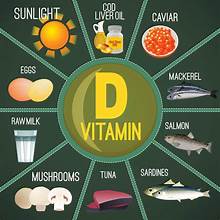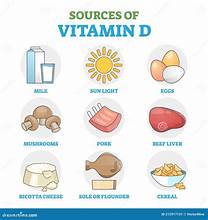Uncategorized
Understanding the Different Types of Vitamin D Supplements
Understanding the Different Types of Vitamin D Supplements
Vitamin D, often referred to as the “sunshine vitamin,” is essential for various bodily functions, including bone health, immune system support, and mood regulation. However, many people don’t get enough vitamin D from sunlight or diet alone, leading them to rely on supplements. This guide explores the different types of vitamin D supplements, their benefits, and how to choose the right one for your needs.
Why Vitamin D is Essential
Vitamin D plays a critical role in:
- Bone Health: It helps the body absorb calcium and phosphorus, essential minerals for strong bones and teeth.
- Immune Function: It supports the immune system, reducing the risk of infections and chronic diseases.
- Mood Regulation: Low levels of vitamin D have been linked to depression and seasonal affective disorder (SAD).
- Muscle and Heart Health: It aids in muscle function and helps regulate cardiovascular health.
Without adequate vitamin D, you risk conditions like osteoporosis, rickets, and weakened immunity.

Types of Vitamin D
There are two main forms of vitamin D supplements:
1. Vitamin D2 (Ergocalciferol)
- Source: Derived from plant-based sources such as fungi and yeast.
- Uses: Commonly prescribed for treating vitamin D deficiencies.
- Bioavailability: Less effective at raising and maintaining blood levels of vitamin D compared to D3.
- Best For: Vegans and vegetarians looking for plant-based options.
2. Vitamin D3 (Cholecalciferol)
- Source: Typically derived from animal-based sources like fish oil or lanolin (from sheep’s wool).
- Uses: Widely used in over-the-counter supplements due to its superior ability to boost and maintain vitamin D levels in the body.
- Bioavailability: More effective than D2, as it mimics the form of vitamin D produced by the body when exposed to sunlight.
- Best For: Individuals with severe deficiencies or those seeking long-term supplementation.
Forms of Vitamin D Supplements
Vitamin D supplements are available in various forms, catering to different preferences and needs:
1. Tablets and Capsules
- Most Common: Easy to store and dose accurately.
- Dosing: Available in a range of strengths, from low-dose daily tablets to high-dose weekly capsules.
- Best For: People who prefer a straightforward and traditional supplement method.
2. Liquid Drops
- Convenience: Suitable for people who have difficulty swallowing pills, including children and the elderly.
- Customizable Dosage: Makes it easy to adjust the dose as needed.
- Best For: Families or individuals with specific dosing requirements.
3. Gummies
- Palatable Option: Ideal for those who dislike swallowing pills or want a more enjoyable way to supplement.
- Added Ingredients: Often fortified with other vitamins like K2 or calcium.
- Best For: Children or adults seeking a tasty, chewable option.
4. Powders
- Versatile Use: Can be mixed into drinks or food for easier consumption.
- Absorption: Often absorbed quickly due to the fine particle size.
- Best For: Individuals who want to incorporate vitamin D into their daily meals or smoothies.
5. Sprays
- Quick Absorption: Absorbed through the mucous membranes in the mouth, bypassing the digestive system.
- Portability: Convenient for travel or on-the-go supplementation.
- Best For: Those with digestive issues or difficulty absorbing nutrients from traditional supplements.
Choosing the Right Dosage
The recommended daily intake of vitamin D varies based on age, lifestyle, and health conditions.

General Guidelines
- Infants (0–12 months): 400 IU (10 mcg)
- Children (1–18 years): 600 IU (15 mcg)
- Adults (19–70 years): 600 IU (15 mcg)
- Seniors (70+ years): 800 IU (20 mcg)
- Pregnant/Breastfeeding Women: 600 IU (15 mcg)
Special Cases
People with vitamin D deficiency may require higher doses, often prescribed as 1,000–4,000 IU daily or even higher under medical supervision.
Key Considerations When Choosing a Supplement
1. Bioavailability
Vitamin D3 is generally more bioavailable than D2, making it the preferred choice for most people.
2. Allergies and Sensitivities
Check the label for allergens like soy, gluten, or artificial additives, especially if you have dietary restrictions.
3. Combination Supplements
Some vitamin D products are combined with other nutrients like:
- Vitamin K2: Works synergistically with vitamin D to support calcium metabolism and bone health.
- Calcium: Enhances bone health benefits.
- Magnesium: Essential for vitamin D activation in the body.
4. Vegan Options
If you follow a plant-based diet, choose vitamin D2 or D3 derived from lichen, a vegan-friendly source.
5. Quality and Certification
Look for third-party testing and certifications like USP, NSF, or GMP to ensure purity and potency.
Potential Side Effects of Vitamin D Supplements
While vitamin D is generally safe, excessive intake can lead to side effects, including:
- Nausea
- Weakness
- Hypercalcemia (high calcium levels)
- Kidney damage
Always stick to the recommended dosage and consult a healthcare provider if you’re unsure.
Vitamin D and Absorption
To maximize the effectiveness of vitamin D supplements:
- Take With Food: Vitamin D is fat-soluble, so consuming it with a meal containing healthy fats improves absorption.
- Pair With Magnesium: Magnesium activates vitamin D and aids in its metabolism.
- Consistency is Key: Regular intake ensures stable blood levels.
The Role of Sunlight and Diet
While supplements are an effective way to boost vitamin D levels, they shouldn’t replace natural sources:
- Sunlight: Aim for 10–30 minutes of midday sun exposure a few times a week, depending on your skin type and location.
- Dietary Sources: Include fatty fish (salmon, mackerel), egg yolks, and fortified foods (milk, cereals) in your diet.
Who Should Take Vitamin D Supplements?
Supplements are especially beneficial for:
- People With Limited Sun Exposure: Those living in northern latitudes or spending most time indoors.
- Older Adults: Aging skin produces less vitamin D, and dietary absorption may decline.
- Individuals With Darker Skin: Higher melanin levels reduce the skin’s ability to produce vitamin D.
- Pregnant and Breastfeeding Women: To support their health and that of their baby.
- People With Health Conditions: Those with malabsorption issues (e.g., Crohn’s, celiac disease) or osteoporosis.
Conclusion
Vitamin D supplements come in various forms, from capsules and tablets to sprays and powders, catering to diverse preferences and needs. While vitamin D3 is the most effective at raising blood levels, D2 can be a suitable option for plant-based lifestyles. By choosing the right form, dosage, and quality product, you can ensure your body gets the vitamin D it needs for optimal health.
Remember, always consult with a healthcare provider before starting any supplement regimen to tailor the approach to your specific health goals and conditions.


